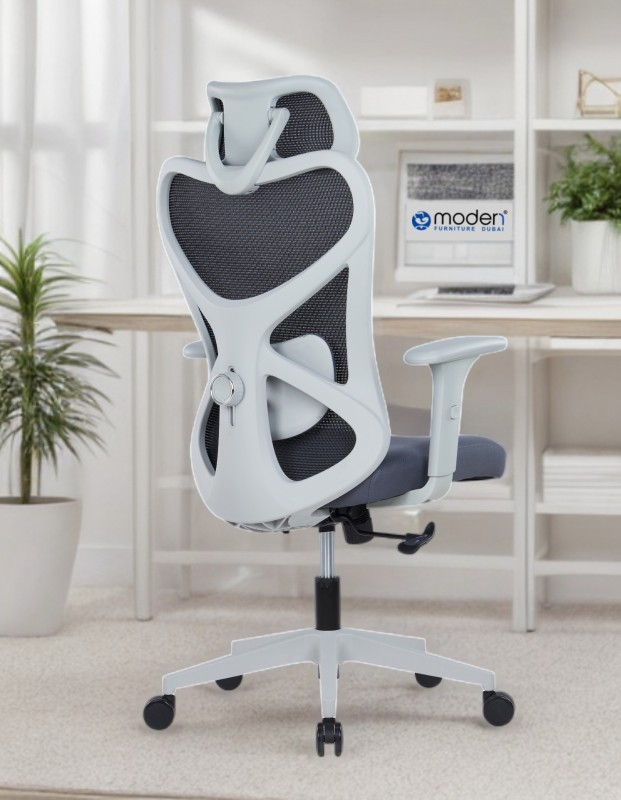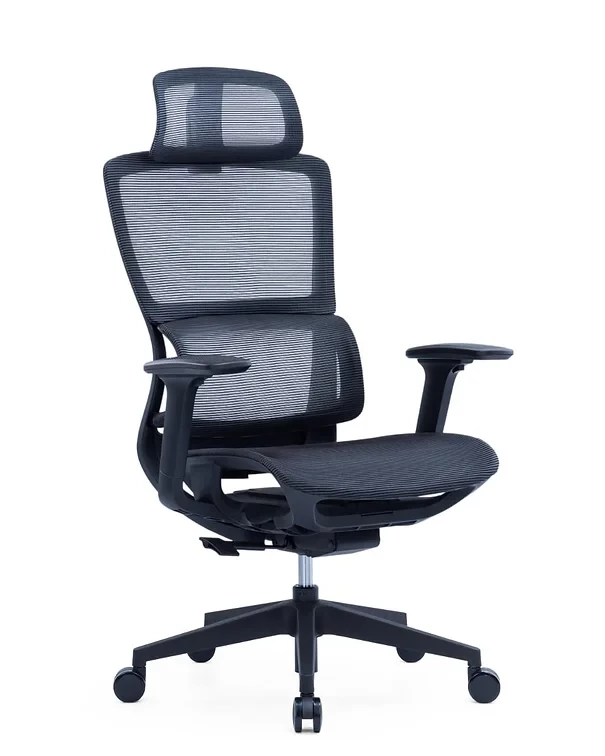
Why Headrests Make a Difference for Professionals in Long Meetings
Introduction
When you're in a meeting, whether it’s with clients, colleagues, or stakeholders, comfort plays a significant role in maintaining focus and productivity. While many people think of the seat and backrest when considering comfort in office chairs, the headrest is often an afterthought. However, for professionals attending long meetings, a quality headrest is not just a luxury—it’s a necessity. This article explores the benefits of having a headrest in your office chair, focusing on how it can make a difference in reducing neck strain and improving overall comfort during extended periods of sitting.
1. Reducing Neck Strain with Proper Support
One of the most immediate benefits of an office chair with a headrest is the support it provides for your neck. During long meetings, especially those that require you to sit upright for extended periods, the lack of proper neck support can lead to strain and discomfort. A headrest that’s properly adjusted helps to relieve pressure from the neck and prevents muscle fatigue.
2. Promoting Better Posture
Headrests not only support the neck but also encourage better overall posture. When your head is properly supported, you’re less likely to slouch or crane your neck forward. This is particularly beneficial during long meetings, where poor posture can lead to long-term discomfort and pain.
3. Enhancing Focus During Long Meetings
Discomfort can quickly become a distraction, especially during meetings that last for hours. A headrest helps reduce neck pain and tension, allowing you to focus on the discussion without being distracted by physical discomfort. It ensures that you're sitting in a relaxed, neutral position, which promotes concentration and reduces the likelihood of needing breaks to alleviate discomfort.
4. Preventing Tension Headaches
Sitting for long hours without proper neck support can lead to tension headaches, especially for those prone to neck tightness. A headrest provides relief by ensuring that the neck is properly aligned, reducing the risk of headaches that often result from poor posture or strain on the cervical spine.
5. Improving Overall Comfort During Long Sitting Periods
During long meetings, the lack of a comfortable, supportive chair can lead to fatigue and discomfort that negatively impacts your ability to contribute effectively. A well-designed headrest enhances comfort by providing full-body support, enabling you to sit for longer periods without experiencing unnecessary pain or discomfort.
6. Customizing Headrest Height for Optimal Support
Adjustable headrests are particularly valuable, as they allow users to customize the height and angle of the support. This level of customization ensures that the headrest can accommodate different body types and preferences, providing tailored support that helps avoid neck strain and encourages a healthy, relaxed posture.
7. Headrests in Ergonomic Chairs
Ergonomic office chairs often come equipped with adjustable headrests, designed to enhance overall comfort. These chairs take into account the natural curves of the spine and offer specific features like lumbar support and headrest adjustments to promote a healthy sitting posture. When used together, these features significantly reduce discomfort during long meetings.
8. Headrests for Executive Professionals
For high-level professionals who attend long meetings and conferences, a comfortable chair is essential. Executive office chairs with headrests are designed to offer superior comfort, helping to maintain focus and productivity even during lengthy discussions. A well-cushioned headrest provides a luxurious touch while supporting your neck and preventing fatigue.
9. Supporting Healthy Sitting Habits
Using a headrest encourages healthier sitting habits by ensuring that your head and neck remain aligned with your spine. Proper alignment not only prevents pain but also reduces the risk of developing chronic neck or back issues. By making sure your chair is set up correctly with an adjustable headrest, you can promote long-term health and comfort.
10. Headrest Benefits for Virtual Meetings
With the rise of remote work, virtual meetings have become increasingly common. Sitting in front of a computer for long periods can cause significant strain, particularly on the neck and shoulders. A headrest offers essential support during virtual meetings, allowing you to stay comfortable and focused without the physical distractions of neck pain.
Recommended Products

FAQs
1. Why is a headrest important in an office chair?
A headrest provides support to the neck, preventing strain and promoting better posture. It enhances comfort during long sitting periods and reduces the risk of headaches and neck pain.2. Can a headrest help with neck pain from long meetings?
Yes, a headrest supports the neck and helps maintain proper alignment of the spine, reducing the likelihood of neck strain and discomfort during long meetings.3. Are all headrests adjustable?
Many office chairs come with adjustable headrests, which can be customized for height and angle. This allows users to find the optimal position for their neck and head, enhancing comfort and support.4. How does a headrest promote better posture?
By supporting the neck, a headrest encourages users to sit upright, preventing slouching or forward neck craning. This helps maintain a neutral spine alignment, reducing strain on the back and neck.



